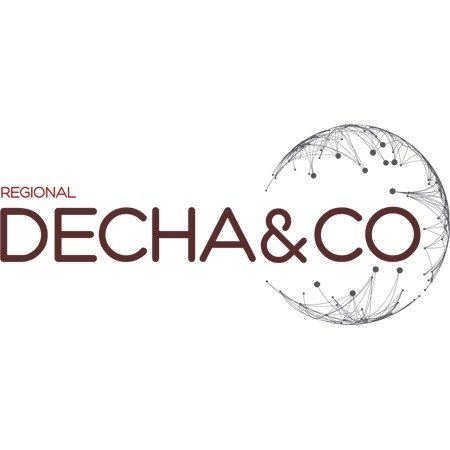Best Structured Finance Lawyers in Yangon
Share your needs with us, get contacted by law firms.
Free. Takes 2 min.
List of the best lawyers in Yangon, Myanmar
About Structured Finance Law in Yangon, Myanmar
Structured finance refers to complex financial transactions that typically go beyond traditional lending or investing. In Yangon, Myanmar, structured finance is significant for companies looking to raise capital, manage risk, or invest in large-scale projects. Structured finance solutions may include securitization, asset-backed securities, project finance, and syndicated loans. The legal landscape in Myanmar is evolving to accommodate these complex transactions, and specialized legal expertise is often needed to navigate the regulatory environment and manage risks efficiently.
Why You May Need a Lawyer
There are numerous situations in which individuals or businesses in Yangon may require a lawyer familiar with structured finance. These situations include:
- Negotiating or drafting structured finance agreements
- Securing project finance for infrastructure or large commercial projects
- Managing regulatory compliance for foreign investments
- Structuring securitization of assets such as receivables or real estate
- Resolving disputes related to structured finance transactions
- Conducting due diligence for complex funding arrangements
- Supporting mergers and acquisitions involving structured finance products
- Advising on tax implications of structured finance deals
Legal counsel can ensure that transactions are compliant with local laws and mitigate potential risks.
Local Laws Overview
Myanmar's legal framework for structured finance is a mix of statutes, regulations, and guidelines issued by regulatory authorities. Some key aspects include:
- Companies Law: The Myanmar Companies Law governs the formation and management of corporate entities involved in finance transactions.
- Financial Institutions Law: This law regulates the activities of banks and financial institutions providing or participating in structured finance.
- Central Bank of Myanmar: The Central Bank issues guidelines on currency controls, cross-border transactions, and foreign investment, all of which impact structured finance deals.
- Foreign Investment Law: Restrictions and incentives under this law influence the structuring of cross-border financial transactions.
- Securities Exchange Law: This law applies to the issuance and trading of securities and may become relevant in structured finance arrangements such as asset-backed securities.
- Contract Law: Basic principles of contract formation, validity, and enforceability are crucial in every structured finance deal.
The interplay of these laws creates a complex legal landscape, where proper legal advice is essential.
Frequently Asked Questions
What is structured finance and how is it used in Yangon, Myanmar?
Structured finance involves creating complex financial products and solutions to raise capital, manage risk, or fund major projects. In Yangon, it is commonly used for infrastructure projects, large real estate developments, and foreign direct investments.
Who regulates structured finance in Myanmar?
The Central Bank of Myanmar, the Directorate of Investment and Company Administration, and the Securities and Exchange Commission all play roles in regulating structured finance.
Can foreign investors participate in structured finance deals in Myanmar?
Yes, but foreign investment is subject to approvals, sectoral restrictions, and compliance with local laws such as the Foreign Investment Law and currency controls.
What are common risks associated with structured finance transactions?
Risks include regulatory changes, enforceability of contracts, credit risk, currency risk, and potential disputes between parties.
How does securitization work in Myanmar?
Securitization involves pooling financial assets and issuing securities backed by them. While still emerging in Myanmar, such transactions must comply with securities, banking, and contract laws.
Is project finance available for infrastructure developments?
Yes, project finance is used especially in sectors like energy, transportation, and real estate, typically with legal frameworks tailored for lenders and sponsors.
What legal documents are required in structured finance deals?
Common documents include loan agreements, security documents, trust deeds, guarantees, and offering memoranda depending on the transaction structure.
How are disputes in structured finance resolved?
Disputes may be resolved through negotiation, mediation, Myanmar courts, or arbitration, depending on contractual arrangements.
Can Myanmar companies issue bonds or other securities as part of structured finance?
Yes, subject to approval from the Securities and Exchange Commission and compliance with Myanmar securities laws.
Why is due diligence important in structured finance?
Due diligence helps identify legal, financial, and regulatory risks in a transaction, ensuring parties make informed decisions and comply with the law.
Additional Resources
For those seeking further information or support in structured finance law in Yangon, the following resources may be helpful:
- Central Bank of Myanmar
- Directorate of Investment and Company Administration (DICA)
- Securities and Exchange Commission of Myanmar
- Myanmar Investment Commission
- Myanmar Bar Association
- International development organizations providing legal and investment guidance
Next Steps
If you require legal assistance in structured finance in Yangon, consider the following actions:
- Identify your specific needs relating to structured finance transactions
- Gather relevant documents and information regarding your intended transaction or investment
- Consult with a licensed lawyer or law firm experienced in structured finance and financial regulations in Myanmar
- Prepare questions and concerns about regulatory compliance, contract structuring, risk management, and dispute resolution
- Discuss potential outcomes, timelines, and costs with your legal advisor
Proactive legal advice is essential to facilitate successful and compliant structured finance transactions in Yangon.
Lawzana helps you find the best lawyers and law firms in Yangon through a curated and pre-screened list of qualified legal professionals. Our platform offers rankings and detailed profiles of attorneys and law firms, allowing you to compare based on practice areas, including Structured Finance, experience, and client feedback.
Each profile includes a description of the firm's areas of practice, client reviews, team members and partners, year of establishment, spoken languages, office locations, contact information, social media presence, and any published articles or resources. Most firms on our platform speak English and are experienced in both local and international legal matters.
Get a quote from top-rated law firms in Yangon, Myanmar — quickly, securely, and without unnecessary hassle.
Disclaimer:
The information provided on this page is for general informational purposes only and does not constitute legal advice. While we strive to ensure the accuracy and relevance of the content, legal information may change over time, and interpretations of the law can vary. You should always consult with a qualified legal professional for advice specific to your situation.
We disclaim all liability for actions taken or not taken based on the content of this page. If you believe any information is incorrect or outdated, please contact us, and we will review and update it where appropriate.









